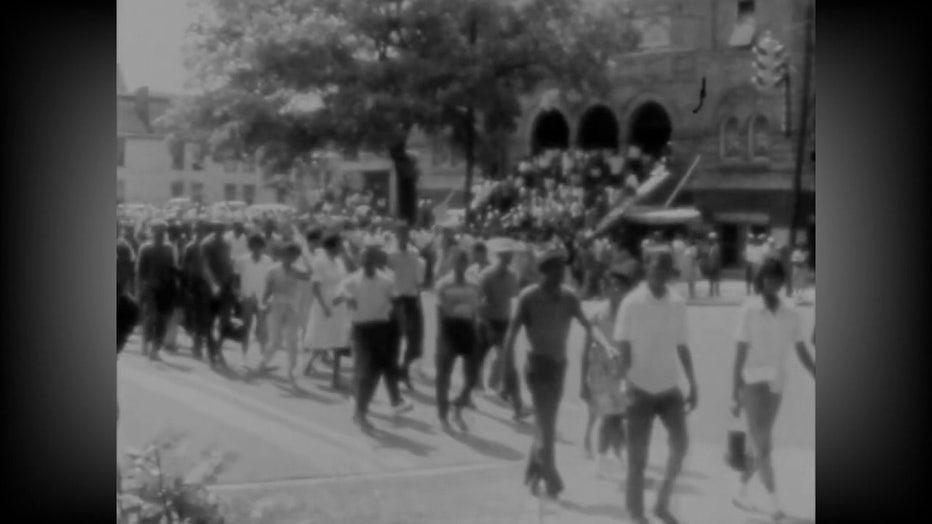America’s Path to Equality: The Selma Movement

America?s Path to Equality: The Selma Movement
FOX 13 Chief Political Investigator Craig Patrick explores America?s climactic battle for civil rights that took place in Selma, Alabama, 60 years ago, and the March on Selma that ultimately compelled Congress to pass the Civil Rights Act.
SELMA, Ala. - America’s climactic battle for civil rights took place in Selma, Alabama 60 years ago. The March in Selma focused on voting rights, and it followed the campaigns in Birmingham, Alabama and St. Augustine, Florida that compelled passage of the Civil Rights Act of 1964.
The backstory:
In Birmingham, on May 3, 1963, students peacefully protested racial segregation, but police attacked them with firehoses and dogs right in front of the press. The images appeared in newspapers across the nation, and inspired federal lawmakers to draft the Civil Rights Act, which segregationists stalled in the senate.
In St. Augustine, on June 18, 1964, a motel owner poured acid in a pool with black and white swimmers. It shocked the nation's conscience, broke the senate filibuster, and convinced Congress to pass the Civil Rights Act one day later.
Dr. Martin Luther King, Jr. declared "St. Augustine may well pave the path to freedom for the century of freedom for all."
It did. The path to equality led from Florida back to Alabama, where peaceful student activists resumed their efforts.

While the Civil Rights Act required restaurants and hotels to serve blacks, it did not remove the barriers to voting. White supremacists who ruled the south required blacks to pay an extra tax called a poll tax and pass a so-called literacy test.
Tampa's Path to Equality:
- Part 1: The First Steps
- Part 2: The Awakening
- Part 3: 'Election of the Century'
- Part 4: The Sit-ins
- Part 5: The Breakthrough
- Part 6: The 'Tampa Technique'
- Part 7: Live on Stage
Dig deeper:
"The poll tax exam required people to know how many windows there were in the courthouse. How many steps there were on the northern entrance to the courthouse, there were absolutely asinine questions being given to register to vote that no one could answer those questions correctly," said Jeff Drew, a civil rights activist who participated in the Birmingham and Selma marches as a high school student.
This inspired students like Drew to advocate for voting rights in what would become the Selma marches in March of 1965.
The first ended in horrific beatings known as Bloody Sunday on Selma’s Edmund Pettus Bridge. The third trekked 54 miles to Montgomery.
What's next:
FOX 13 sat down with civil rights pioneers who survived Bloody Sunday and who completed the March and will share their accounts throughout the month of March as the U.S. commemorates the 60th anniversary of the Battle of Selma.
The Source: The information in this story was gathered through interviews and research by FOX 13's Craig Patrick.
WATCH FOX 13 NEWS:
STAY CONNECTED WITH FOX 13 TAMPA:
- Download the FOX Local app for your smart TV
- Download FOX Local mobile app: Apple | Android
- Download the FOX 13 News app for breaking news alerts, latest headlines
- Download the SkyTower Radar app
- Sign up for FOX 13’s daily newsletter

